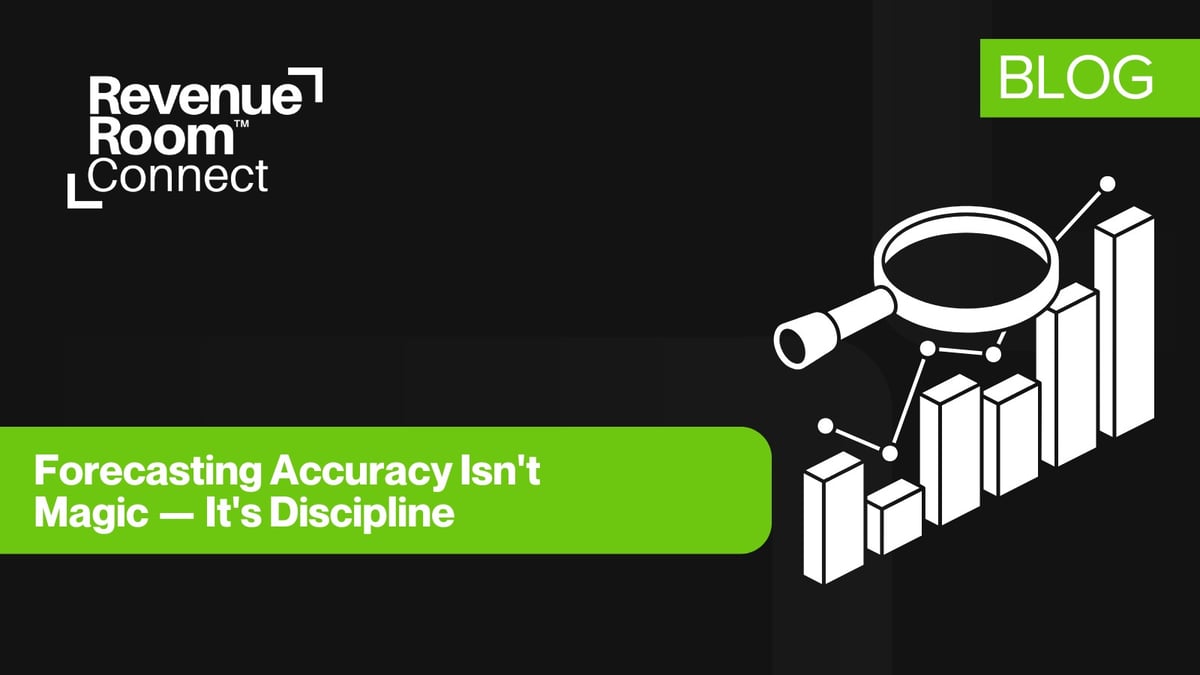The Hard But Very Obvious Truth About Efficient & Accurate Revenue Forecasting
Everyone loves the idea of "predictive forecasting" - feeding a few data points into the CRM, clicking a button, and watching flawless forecasts that tell you which deals will close and when roll out like magic.
But here's the reality: you can't predict what you can't even track accurately.
Before you start chasing predictive models or AI tools, you need four fundamental cultural and operational disciplines in place. Without these? You're forecasting gives off vibes of wishful thinking - not data. Between the clients we work with on data transformation and CRM evaluation and selection projects and participants in The Revenue Room™ Bootcamp, it’s clear that gaining mastery of the critical foundational basics is a critical must-do before thinking about adding in predictive modeling.
Before I kick this off, it is important to note that an underlying cause to at least point 1 is that the CRM system of record is woefully outdated and unable to meet the needs of end users. Everything from being too slow, too clunky, and overall outdated can absolutely sour any sales person from wanting (or being able) to use the CRM.
The Four Non-Negotiables of Forecast Accuracy
- CRM Compliance and Rules of the Road: If your sales team isn’t using your CRM as an active revenue tool that is embedded into their daily flow of work, you're forecasts are either dead in the water or you are wasting tens of thousands of dollars each month tracking down accurate pipeline information and revising and updating forecasts in Excel. Forecasts will never be better than the junk that’s entered (or not entered) into the system. CRM usage must be expected, inspected, and enforced. And it must be seen as a value driver for the salesperson, not a forced administrative activity.
- A Pristine Pipeline: Zombie deals (the ones rotting in the pipeline but never progressing) and sandbagging (reps hiding deals until they're sure they'll close) kill your forecasting credibility. Your pipeline must reflect reality, not fantasy or gamesmanship.
- Ongoing Data Hygiene: CRM data isn't "set it and forget it." It's a living organism that needs constant cleaning and pruning. Old contacts, stale opportunities, inconsistent fields — all of it degrades trust in the forecast.
- CRM and Pipeline at the Center of Sales Management: If pipeline and deal inspection aren't a weekly ritual, you’re not serious about forecasting. Leadership needs to drive the culture of "the pipeline is our truth.
The Role of the CRO
Most revenue leaders know the fundamentals. But knowing isn’t the same as operationalizing them. Fixing forecasting dysfunction requires aligned leadership, clear rules of engagement, and sometimes a complete redefinition of what sales leadership is actually supposed to do.
As I discussed during Bootcamp, This is where the Chief Revenue Officer (CRO) comes in.
The role of the CRO isn’t to "protect" the sales team from change, pressure, or accountability. The CRO's mission is to ensure that sales efforts are efficient, scalable, and profitable - and that the entire GTM (Go-to-Market), sales, and customer success ecosystem is aligned to meet the strategic needs of the business.
In contrast, many VPs of Sales - often by design - act as the shield between the sales team and the broader business demands. Their job is to maximize team performance, yes, but often with a heavy bias toward defending the status quo and fighting for favorable quotas, resources, and targets.
A great CRO drives alignment across marketing, sales, and customer success - holding the whole system accountable for revenue outcomes, not just activities.
They enforce operational discipline because they know:
Revenue is a system, not a department.
As one CEO said after Bootcamp Session 4:
We knew we had CRM issues — but after this session, we realized they run much deeper than we thought. CRM compliance can't be a 'nice to have' because we're too afraid of rocking the boat. It has to be a non-negotiable revenue driver, not something seen as a punishment.
If you're serious about moving from inefficient, time-consuming, erroneous forecasting to true forecasting confidence, you need to build the foundation. No silver bullets. No shortcuts. We can help you break through.
Want the full playbook? 👉 Create your free profile at RevenueRoomConnect.com and read the rest of the article — plus get priority access to the next Revenue Room™ Bootcamp cohort starting June 13 and running through July 31, 2025. Seats are limited. Real revenue transformation is for serious people. Click here to learn more and sign up.




